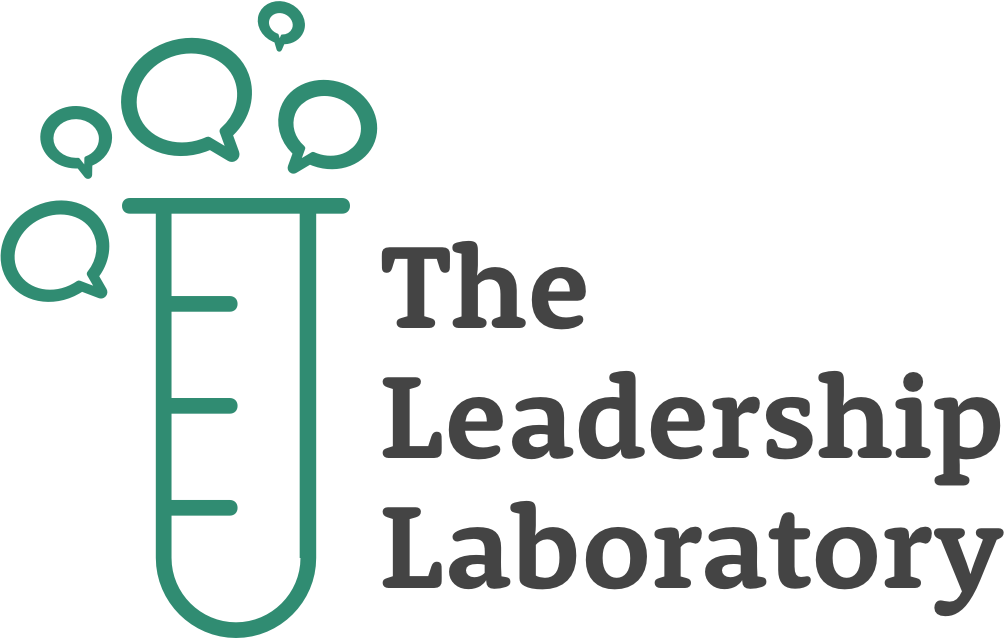Written by Jacob Goldstein — Executive Director
Interested in workshops on this topic for you and your team? Visit the Leadership + Management page for recommended interactive learning experiences from The Leadership Laboratory for emerging and established leaders in your organization.
Research from The Harvard Negotiation project resulted in a deeper understanding on our perceptions to the feedback we receive. In their book Thanks for the Feedback, Bruce Patton and Sheila Heen argue that there are three common reasons we respond negatively to feedback. These triggers, they argue, can be summarized into three categories: the Truth Trigger, the Relationship Trigger, and the Identity Trigger. As you read through each of the three triggers, think back to recent feedback conversations you have had. Which of these triggers have been activated for you? When you’ve provided feedback to others, have any of these been activated for them?
With the Truth Trigger, we acknowledge we each have different perspectives for a given situation. Our version of the truth is different from theirs. It is not about right or wrong, exactly, but rather about interpretation and judgement. Simply put, there are two different versions of the same truth, and as each perspective is valid and may not have the complete picture, both truths are “right”. We say this because our version of the truth is due to the experiences we have had an the information we are privy to. Conversations where we feel our truths are not the same is often due, in part, to some missing information, and working to seek out this missing information by asking the feedback provider to share their perspective often helps to assuage our frustrations. Here, we must ask: What information am I missing? What is causing my version of the truth to be different from theirs?
In thinking about the Relationship Trigger, we refer to our perspective on the relationship we have with the feedback provider. Our thoughts and feelings of other person shape our perceptions of the actions they take. For a moment, think of someone you adore; your best friend. Imagine a scenario where you are due to meet each other for coffee at 8:00am. Five minutes go by…then ten…then fifteen. After twenty minutes, you think why were they late? When asked this question, groups typically respond with comments like ‘Perhaps I mixed up the date’ or ‘Maybe they inadvertently went to a different location’ or, for the highly anxious among us, jump to the conclusion that ‘Maybe something happened to them on the way here; a car accident, or a bear attack!?!’. Now picture the same scenario with someone you dislike; your worst enemy. Here, groups often respond with ‘They stood me up!’ or ‘They did this on purpose!’ or even a sheepishly excited ‘Maybe something bad happened!’. Notice that the situation for both groups is identical: we were supposed to meet at 8:00am for coffee, and the person we are meeting is twenty minutes late. It’s our relationship with the individual that triggers completely different responses. The same is true for feedback – we are far more likely to accept feedback from people that we like and respect than from individuals with whom we do not have a solid relationship. Here we ask: how would my response to this feedback differ if my relationship with the other individual were stronger and positive? Would I feel differently if my best friend shared this information with me?
Lastly, Patton and Heen share about the Identity Trigger, which plays deeply into the views we have of ourselves. We view ourselves in a certain light, and when we receive feedback that is in opposition to that, it often results in a feeling of an attack on our identity as a whole. In their reports, they acknowledge a situation where a woman decides to approach her neighbor about their dog who is barking keeps her up at night. The neighbor might view themselves as a conscientious person and responsible pet owner, and this information serves in direct opposition to that. When receiving this feedback, we have to separate the feedback from the person as a whole. Does this feedback speak to who I am as a person? Or simply how I have showcased myself in one particular instance?
Think back to feedback conversations you have had in the past. Which of the three triggers has been activated the most for you? For your people? What can you do differently to ensure these feedback triggers can be avoided in the future?
The Leadership Laboratory is a nation-wide, Chicago-based learning and leadership development company. We build and facilitate custom team and leadership development workshops aimed at transforming the way we lead our work and people. Through interactive workshops, participants will experience customized professional development for emerging and new leaders, established and senior leaders, and teams of all sizes. Feel free to browse our website, www.leadershipdevelopmentlab.com, to learn more about our team building workshop and leadership development programs.

